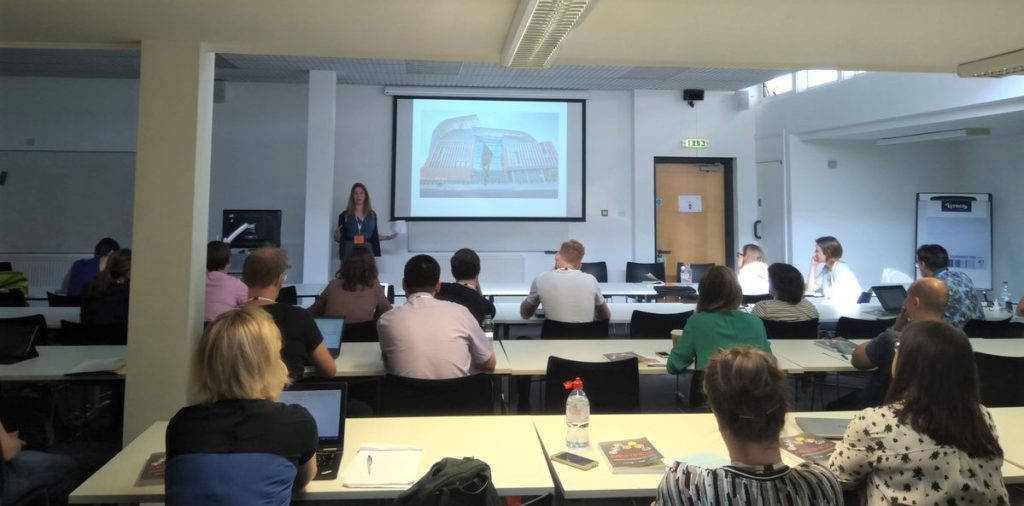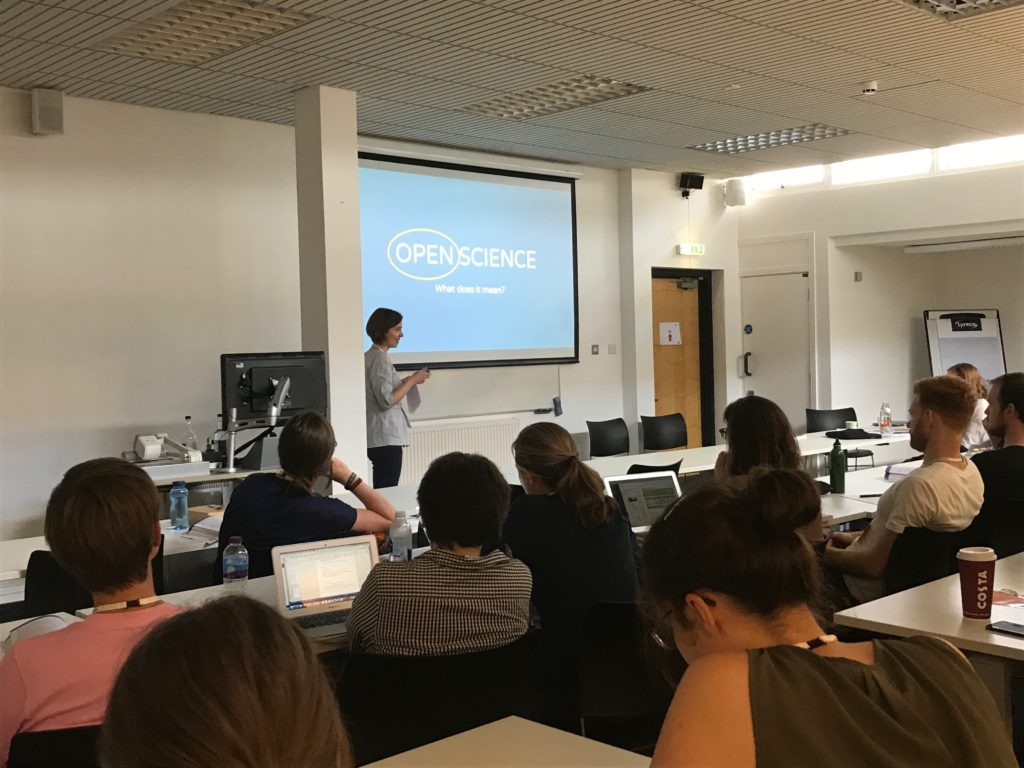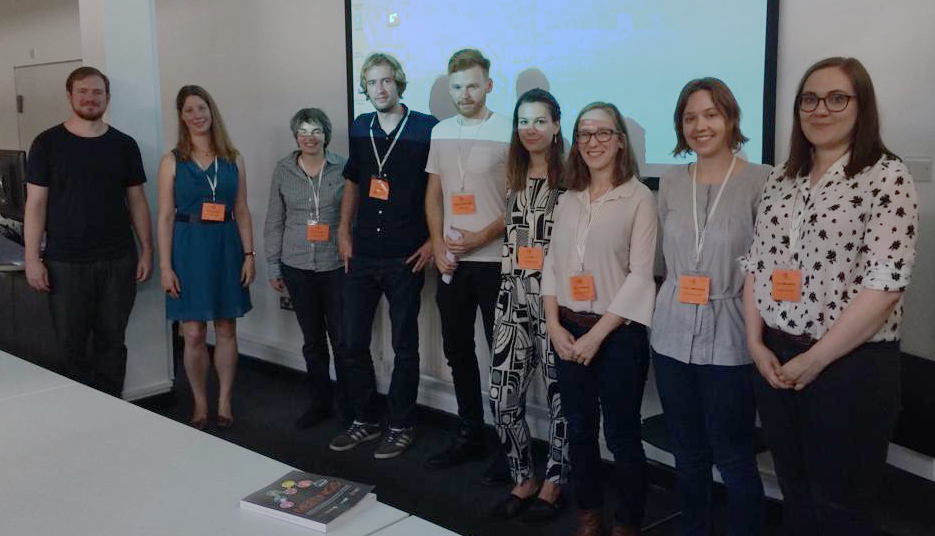Why re-engage with identity in STS?

At EASST 2018, we organized a full-day panel on the topic of Scientists – agents under construction. Exploring the scientist – or the researcher, the knowledge-maker, the academic – as a category of person may seem strange, even old-fashioned, given that STS has worked hard to produce accounts of knowledge construction that are relational and contextual; in which scientists are parts of a network. Moreover, STS has fought for knowledge construction that includes those who are not given the label and authority of “scientist” or “expert”. However, it was neither the aim nor the outcome of the panel to essentialise the person of the scientist. Instead, the emphasis was on “under construction”: scientists not only as producers of knowledge, but as products-in-the-making of knowledge cultures. As Bulpin and Molyneux-Hodgson (2013, p. 93) have argued, focusing on the empirical production of the epistemic subject highlights how “machineries of knowing” (Knorr Cetina, 1999) construct both the subjects and objects of science. Accordingly, we believe this perspective can enrich approaches that focus on knowledge production, while also drawing attention to historically and culturally specific ways of being a scientist, how these change over time, and how they are entangled with political struggles of our time.
Of course, scientists’ identities have not gone unstudied. Transformations to research landscapes over past centuries and decades have been studied extensively, and some key works have examined these transformations through the lens of scientists’ changing lives, roles and selves: for example, Law’s Organising Modernity (2004), Daston and Galison’s Objectivity (2007), and Shapin’s The Scientific Life (2008). But there are many contemporary changes to research landscapes that are either new or becoming particularly acute, for example: rise of evaluation procedures as measurements for scientific success; increasingly short-term employment contracts in some countries; the implementation of novel policy agendas such as responsible research and innovation (RRI) and “open science”; and a focus on inter- or transdisciplinarity in academic work. Our panel was partly inspired by our curiosity and concern about how such changes participate in constructing today’s scientists, especially as changes overlap and the figure of the scientist must respond to myriad combined and contrasting demands.
With the hope of prompting reflective and diverse submissions, we posed questions such as: How do researchers form identities and what are the practices, norms and values that these are based upon? What role does identity play for researchers, their communities and, their institutions? And: How are researchers making sense of their identities, and thereby accommodating to or resisting the conditions of research environments?

Exploring identity together
Our idea to re-engage with scientific identities was inspired by a track at 4S/EASST 2016 in Barcelona and a follow-up workshop in Vienna in 2017 entitled “Community and identity in contemporary technoscience”. Following our call for abstracts, we realized that we were not alone with our reflections and concerns. We received great interest in our panel, both in the form of submitted abstracts – which resulted in 18 accepted abstracts, and eventually 13 presentations across four sessions – and in the form of a large audience at EASST 2018 in Lancaster. The group of scientists brought together by this panel was heterogeneous, coming from STS and STS-related fields and mirroring a wide-ranging interest in reflecting on scientists, their self-understandings, and broader implications for science. The presenters were able to shed light on aspects of scientific identities and circumstances of identity construction that are varied but nonetheless lead to common themes and concerns.
The first thematic group largely consisted of empirical studies that explored natural scientists’ navigation of spatial belonging in individual careers or institutional contexts, often influenced by a prevalent neoliberal regime in the academe. Sarah Davies drew attention to scientists’ concepts of “luck” and “choosing” in their diverse narrations of their career-associated international mobility; Niki Vermeulen* and Andrea Nunez Casal highlighted aspects of spatial belonging and identity that emerged through the upheaval of a research institute’s relocation; and Sarah Schönbauer examined dynamics of conformity and resistance that were simultaneously part of scientists’ belonging to their workplace, and alignment to its corporate identity.
In a second thematic group, the presenters engaged with identity in the context of prevalent regimes of success, excellence, impact and projectification in academia. Alexandra Supper for example showed how nascent researchers navigate a tension between independent and project-aligned identities in doctoral dissertations; Kay Felder* and Ruth Müller discussed how reviewers for the ERC attribute excellence to researchers when they assess CVs and projects; Wolfgang Kaltenbrunner*, Sarah de Rijcke and Ruth Müller explored how scientists make sense of and negotiate the conventions that underpin the assessment of academic CVs; and Justyna Bandola-Gill showed how academics navigate the UK’s research impact agenda in a knowledge culture that also demands excellence.
The third thematic group engaged with policy and/or funding agendas that set out to transform knowledge-making fields: Andreas Röß* and Philine Warnke made the case for responsible research and innovation (RRI) as a regime with the capacity to shape scientists’ subjectivities; Rosalind Attenborough examined how scientists construct “openness” as an epistemic virtue both within and outside of “open science” agendas; and Thomas Franssen mapped the resource-driven emergence of the digital humanities as an epistemic regime. Also linking with this theme, Mirko Suhari showed that transdisciplinary energy research is an emerging epistemic regime shaping new scientific subjectivities.
Finally, two presentations captured particularly systematic, potentially generalizable views of how scientific identities can be conceptualized and studied: Anna Kosmützky* and Romy Wöhlert proposed a large-scale study of professional identity formation in international collaborative research projects; and Anja Bauer* and Karen Kastenhofer’s empirical study presented Technology Assessment (TA) practitioners as agents under (re)construction, for whom previous academic socializations are key among several contextual identity-forming factors.

Summing up
So why do we think it is worthwhile to engage with the identities of scientists, after all? The volume and variety of thematic engagements that the presenters made with scientific lives, roles, and subjectivities, shows that there is a vibrant curiosity in STS to engage with the being and belonging of scientists. We believe there is also a demand for more conceptual tools and conversations that develop identity in an STS context. And, 100 years after Weber’s famous lecture on “Science as a Vocation” (Weber 1918/19, 1946), we call for debates on how scientific identity might take shape today in relation to current responsibilities and challenges that transcend changes in the academe, such as societal reconfigurations (e.g. latent individualization) and political changes (e.g. Brexit, the increase in right-wing tendencies, and the post-fact conundrum). These circumstances have been raised in critical commentaries, for example Vermeulen (2018) argued in the context of UK academic strikes that “within our own academic community spaces for debate and discussion are crucial…we need to, for instance, pay attention to the identity of scientists” (p. 5). We believe that it is important to stay with this trouble and stay attentive to what is to come, to the logics that might undermine our worlds as scientists, and to critical approaches that promote liveable and valuable spaces of knowledge production. While these developments and diagnoses are not exclusive to the academic world, it is nonetheless crucial to re-engage with identity in STS, and to articulate how it can be used as a conceptual tool to understand the politics of being and belonging in the world of science.
References
Bulpin K, and Molyneux-Hodgson S (2013) The disciplining of scientific communities. Interdisciplinary Science Reviews 38(2): 91–105.
Daston L and Galison P (2007) Objectivity. Brooklyn: Zone Books.
Knorr Cetina K (1999) Epistemic Cultures: How the Sciences Make Knowledge. London: Harvard University Press.
Law J (1994) Organizing Modernity. Oxford: Blackwell Publishers.
Shapin S (2008) The Scientific Life. A Moral History of a Late Modern Vocation. Chicago: University of Chicago Press.
STS/Austria/EASST workshop 2017, Vienna/Austria, 16-18 February: ‘Community and identity in contemporary technosciences’, for details see Kastenhofer K (2018) Community and identity in contemporary technosciences: Conceptual issues and empirical change. EASST Review 37(2).
Track at 4S/EASST 2016, Barcelona/Spain, 31 August – 3 September: ‘(Techno)science by other means of communality and identity’, Convenors: Karen Kastenhofer (Austrian Academy of Sciences), Sarah Schönbauer (University of Vienna), Niki Vermeulen (University of Edinburgh).
Vermeulen N (2018) Creating spaces for debate and action. EASST Review 37(2).
Weber M (1946) Science as a Vocation. In: H. Gerth & C.W. Mills. From Max Weber: Essays in Sociology. New York: Oxford.